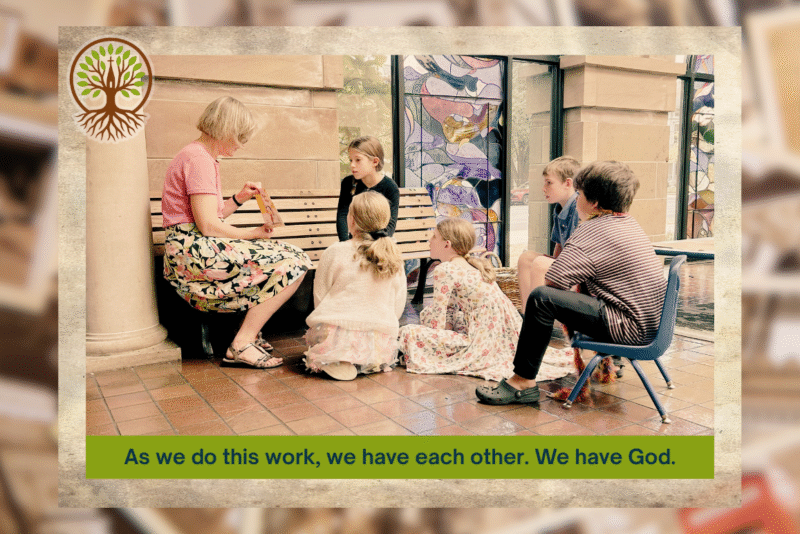
In this time, in this place, I give because… I believe that we at Broad Street stand together to witness our faith in our own time and place. Here. Now.
In her April 27 sermon, Amy reported that the BSPC session had discussed how best to deal with “these challenging and difficult times,” noting that this is not the first time churches have confronted problems. She told us that the session had voted for BSPC to follow the path of the German Confessing Church, congregations that separated from the larger German Evangelical Church in order to oppose efforts to unify the nation’s protestants into a single pro-Nazi denomination.
I grew up in a small-town Texas Presbyterian church which was blessed in my teen years with a pastor who preached about Dietrich Bonhoeffer, a leader in the Confessing Church, and his witness of costly discipleship. Bill Smith (yes, that was his name) was a formative presence in my life, patiently talking with me as I tried to understand what that kind of faith might mean for my life.
In 1934 the Confessing Church approved the Barmen Declaration, which affirmed their faith in Jesus Christ. The centerpiece of the declaration was the statement, “Jesus Christ is the one Word of God which we have to hear and which we have to trust and obey in life and in death.” Drafted by Karl Barth, the document further states, “We reject the false doctrine, as though the Church were permitted to abandon the form of its message and order to its own pleasure or to changes in prevailing ideological and political convictions.”
After the end of World War II Confessing Church Pastor Martin Niemoller, who was imprisoned by Hitler for eight years during the war, confronted his personal anti-Semitism and support of the Nazis as they rose to power by saying:
First they came for the socialists, and I did not speak out—
because I was not a socialist,Then they came for the trade unionists, and I did not speak out—
because I was not a trade unionist.Then they came for the Jews, and I did not speak out—
because I was not a Jew.Then they came for me—
and there was no one left to speak for me.
As Amy said in last April, “As we do this work, we have each other. We figure this out together. We have God.”
At this point in my life, there are many things I can no longer do. One thing I am grateful that I can still do is to support the work of Broad Street Presbyterian Church during “these challenging times and difficult days.”

